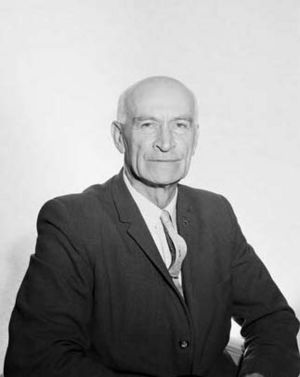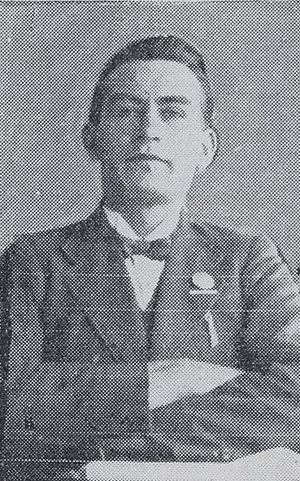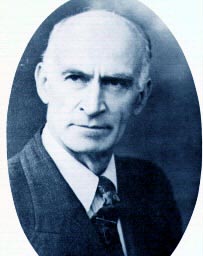Albert Hawke facts for kids
Quick facts for kids
Albert Hawke
|
|
|---|---|
 |
|
| 18th Premier of Western Australia | |
| In office 23 February 1953 – 2 April 1959 |
|
| Monarch | Elizabeth II |
| Governor | Sir Charles Gairdner |
| Preceded by | Sir Ross McLarty |
| Succeeded by | David Brand |
| Leader of the Labor Party in Western Australia |
|
| In office 26 June 1951 – 31 December 1966 |
|
| Deputy | John Tonkin |
| Preceded by | Frank Wise |
| Succeeded by | John Tonkin |
| Member of the Legislative Assembly of Western Australia |
|
| In office 24 April 1933 – 23 March 1968 |
|
| Preceded by | Sir James Mitchell |
| Succeeded by | Ken McIver |
| Constituency | Northam |
| Member of the House of Assembly< | |
| In office 5 April 1924 – 26 March 1927 |
|
| Preceded by | George Jenkins |
| Succeeded by | George Jenkins |
| Constituency | Burra Burra |
| Personal details | |
| Born | 3 December 1900 Kapunda, South Australia, Australia |
| Died | 14 February 1986 (aged 85) Adelaide, South Australia, Australia |
| Political party | Labor |
| Spouse | Mabel Crafter |
| Children | 1 |
| Relatives | See Hawke family |
Albert Redvers George Hawke (born 3 December 1900 – died 14 February 1986) was an important Australian politician. He served as the 18th Premier of Western Australia from 1953 to 1959. A member of the Labor Party, he also held seats in parliament in both South Australia and Western Australia.
Hawke started his political journey in South Australia. He was elected to the South Australian House of Assembly in 1924 when he was only 23 years old. This made him the youngest Member of Parliament (MP) in South Australia's history at the time. After losing his seat in 1927, he moved to Western Australia. There, in the 1933 state election, he famously defeated the sitting Premier, Sir James Mitchell, in the Northam area.
Albert Hawke became a government minister in 1936. He served in several important roles before becoming the leader of the Labor Party in Western Australia in 1951. He led his party to victory in the 1953 state election and became Premier. He won again in 1956 but was defeated in 1959. Hawke continued to lead the Labor Party until 1966 and retired from parliament in 1968. His nephew, Bob Hawke, later became the 23rd Prime Minister of Australia.
Early Life and Beginnings
Albert Hawke was born in Kapunda, South Australia. His parents, James Renfrey Hawke and Elizabeth Ann Blinman, had Cornish family roots. He left school at 13 and started learning to be a clock-maker and jeweller. Later, he worked in a lawyer's office. He joined the Labor Party when he was 15 years old.
A Career in Politics
In April 1924, at just 23 years old, Albert Hawke won the Burra Burra seat in the South Australian House of Assembly. This made him the youngest person ever to be elected to that parliament.
He lost his seat in the next election in 1927 by a very small number of votes. In 1928, he moved to Western Australia. There, he worked for the Labor Party in country areas. In 1933, he caused a big surprise in politics. He defeated the current Premier, Sir James Mitchell, in the Western Australian Legislative Assembly seat of Northam. Sir James Mitchell had held that seat for 28 years! Hawke then held the Northam seat himself for 35 years, until he retired from parliament in 1968.
During his time in the Western Australian parliament, he held many important jobs. In 1936, he became the Minister for Employment and Labour. He also served as Minister for Labour and Industrial Development, and later Minister for Works, Water Supplies, and Industrial Development. After the Labor Party lost the 1947 election, he became the Leader of the Opposition in 1951.
In the 1953 election, he led the Labor Party to victory. He became Premier of Western Australia, and also served as Treasurer and Minister for Child Welfare and Industrial Development. In June 1953, Premier Hawke attended the coronation of Queen Elizabeth II in London. His government made several important changes. They worked to improve conditions for Aboriginal people in Western Australia. They also built more houses and schools. Other changes included increasing payments for injured workers, allowing women to serve on juries, and raising the school-leaving age to 15.
Later Life and Passing
The Labor Party lost the March 1959 election to David Brand's Liberal Party. However, Albert Hawke remained the leader of the opposition until 1966. He retired from parliament in 1968. After retiring, he moved back to South Australia. He passed away in Adelaide in 1986.
Family Life
In 1926, Albert Hawke married Mabel Crafter. They had one daughter together.
Albert Hawke's brother, Clem Hawke, was a church minister. Clem was the father of Bob Hawke, who became the Prime Minister of Australia from 1983 to 1991. This means Albert Hawke was the uncle of a future Prime Minister!
See Also
- Hawke Ministry
 | Sharif Bey |
 | Hale Woodruff |
 | Richmond Barthé |
 | Purvis Young |



